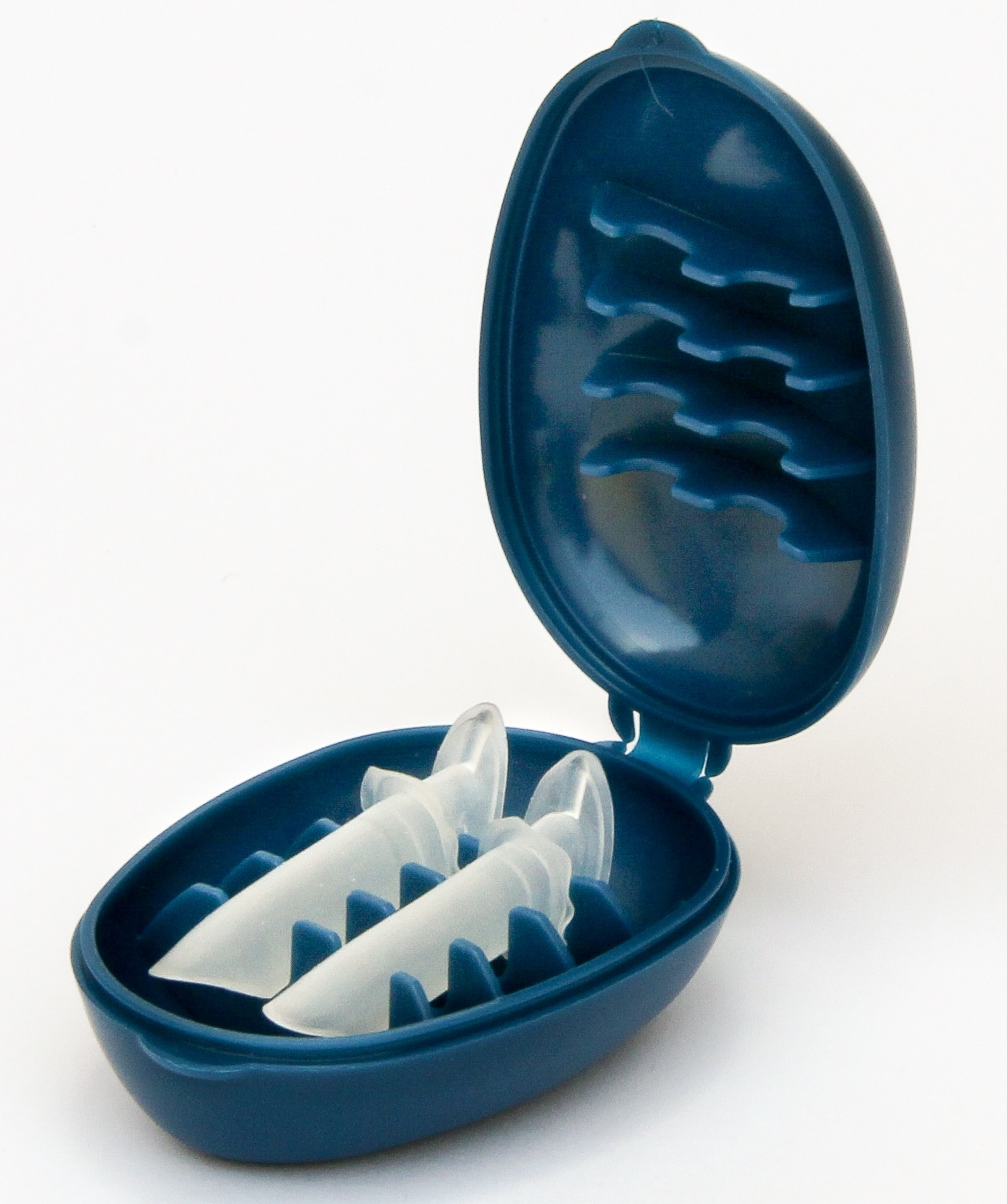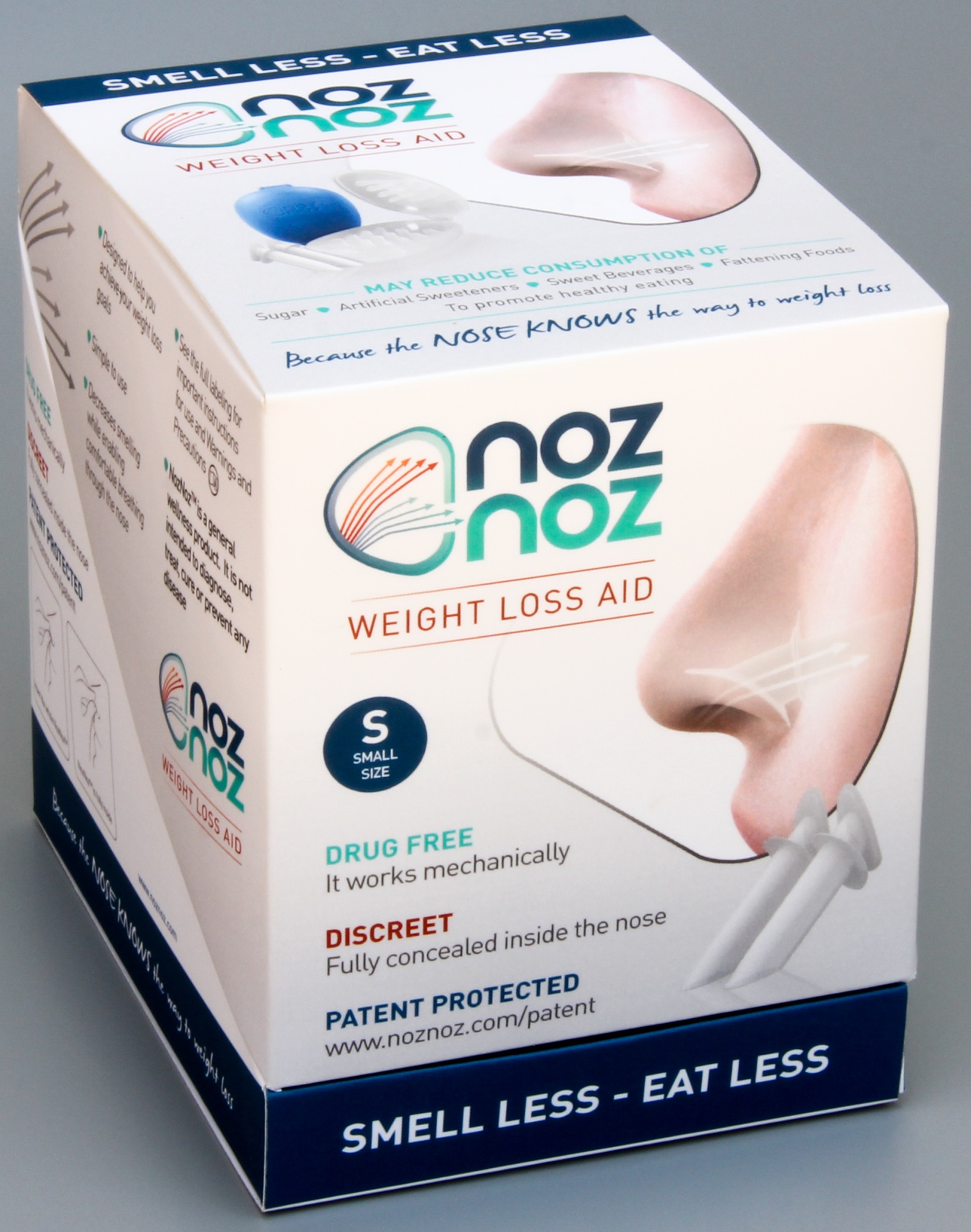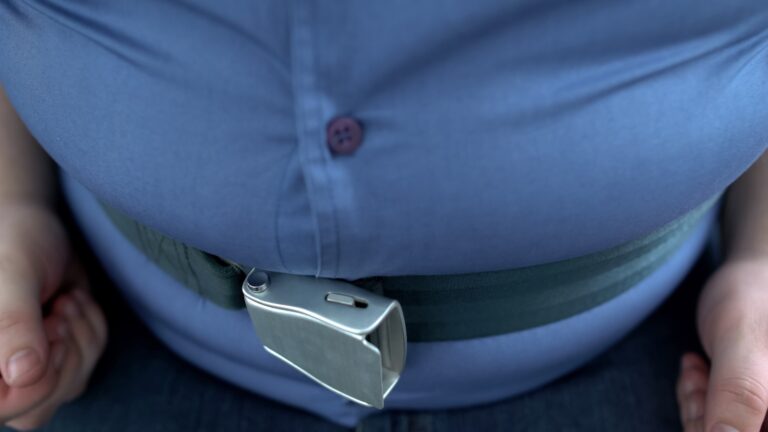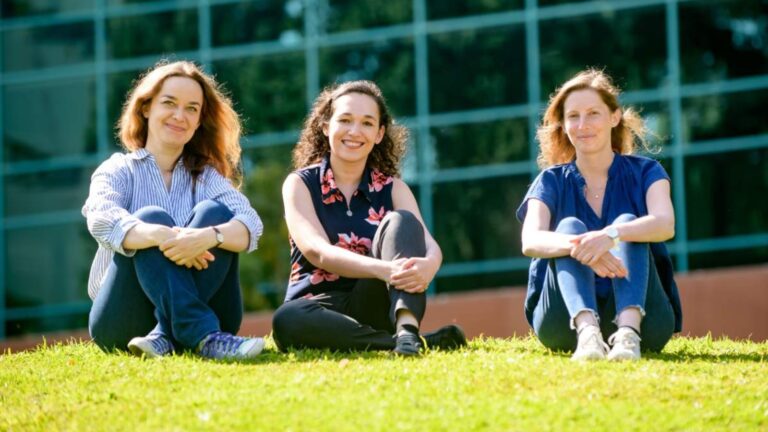Some years ago, Adva Beck experienced an “aha” moment when she bit into her favorite fruit, a peach, and quickly discarded it because her stuffy nose prevented her from tasting it properly.
She didn’t have any background in biology or medicine but the phenomenon intrigued her and she started to study scientific literature about how smell affects appetite and weight.
Her research led her to invent and patent NozNoz, a drug-free, soft silicone nasal insert positioned as a general wellness product that may enhance dieters’ efforts, help them achieve their weight loss goals and maintain the results.
“NozNoz is like contact lenses for the nose,” says Beck, CEO of eight-year-old Beck Medical in Givat Ada outside Tel Aviv. “You put it in your nose in the morning and take it out at night. It’s very discreet, like your little secret assistant in your fight for weight loss. The unique thing is that it’s drug-free and self-administered.”
A pilot trial of the device was led by Dr. Dror Dicker, head of the Obesity Clinic at Hasharon Hospital-Rabin Medical Center in Petah Tikva, president of the Israeli Association for the Study of Obesity and co-chair of the Obesity Management Task Force of the European Association for the Study of Obesity.
“Dr. Dicker taught me that that weight loss and weight management are things you have to take care of daily, throughout your life, and most people need a lifelong daily physiological assistance in these missions,” says Beck. “Currently, there is no single magic solution that works for all people. Each person has to do trial and error for a solution that works.”

Available online to customers in the European Union, United States and Israel, NozNoz mechanically diverts smells from olfactory receptors in the nose.
Beck says previous studies have shown that overweight and obese people paradoxically have less smelling capacity in general but higher sensitivity to food smells. This sensitivity stimulates, or overstimulates, their appetite when exposed to food aromas.
“Smell has a strong connection to metabolic function, weight management and food preferences,” says Beck. “Food odors stimulate the olfactory bulb to affect a variety of hormones controlling hunger and satiation, food choices and other weight-related aspects.”
The groundbreaking small pilot study supervised by Dicker was the first to deliberately reduce smelling capacity in humans. A newly published mouse study showed that smell reduction changes appetite and food preferences. It also activates a helpful internal mechanism that burns fat and not muscle, and reduces weight even when there is no change in eating habits.
Ordinarily, Beck explains, weight loss leads to loss of fat as well as muscle mass. If weight is regained, that usually adds only fat and therefore further upsets the balance of fat to muscle.
Younger noses had best results
Thirty-seven subjects used the NozNoz insert five to 12 hours per day and the others got placebo saline nose drops that they were told would blunt their appetite.
All participants were put on a moderate reduced-calorie diet and lost weight. The NozNoz users reported significantly reduced consumption of sugar, artificial sweeteners and sweet beverages compared to the control group.

Among participants younger than 50 – the age at which the sense of smell starts to wane naturally — weight loss almost doubled compared to the control group (8.3 kg vs. 4.3 kg). Younger participants using the device for an average of over eight hours a day lost an average of 10.1 kilograms during the trial.
Dicker presented the results of the study earlier this year at the European Congress on Obesity in Vienna. Larger studies are planned.
“Because NozNoz is a simple and safe product that may assist many people in their daily struggle for weight management and healthy eating, we made it available to customers now for such wellness uses. Some people will benefit greatly from using NozNoz daily, while others will not, just as with other weight-loss aids,” says Beck.

“We continue to further explore other possible exciting uses of NozNoz, such as obesity, smoking cessation, diabetes and nose-to-brain drug delivery, all patented by Beck Medical.”
The potential market is tremendous. The World Health Organization reported in 2016 that more than 1.9 billion adults aged 18 years and older were overweight (39% of men and 40% of women) and about 13% of the world’s adult population (11% of men and 15% of women) were obese as defined by a body mass index of 30 or more. What’s more, some 340 million children and adolescents aged 5-19 were overweight or obese in 2016.
The World Obesity Federation predicts that over the next eight years, unless prevention efforts are more successful, the United States will spend $4.2 trillion on treating obesity-related disease, Germany will spend $390 billion, Brazil $251 billion and the UK $237 billion.
Watch out for our coming story on further Israeli breakthroughs in obesity, due out in early October.
For more information, click here

















